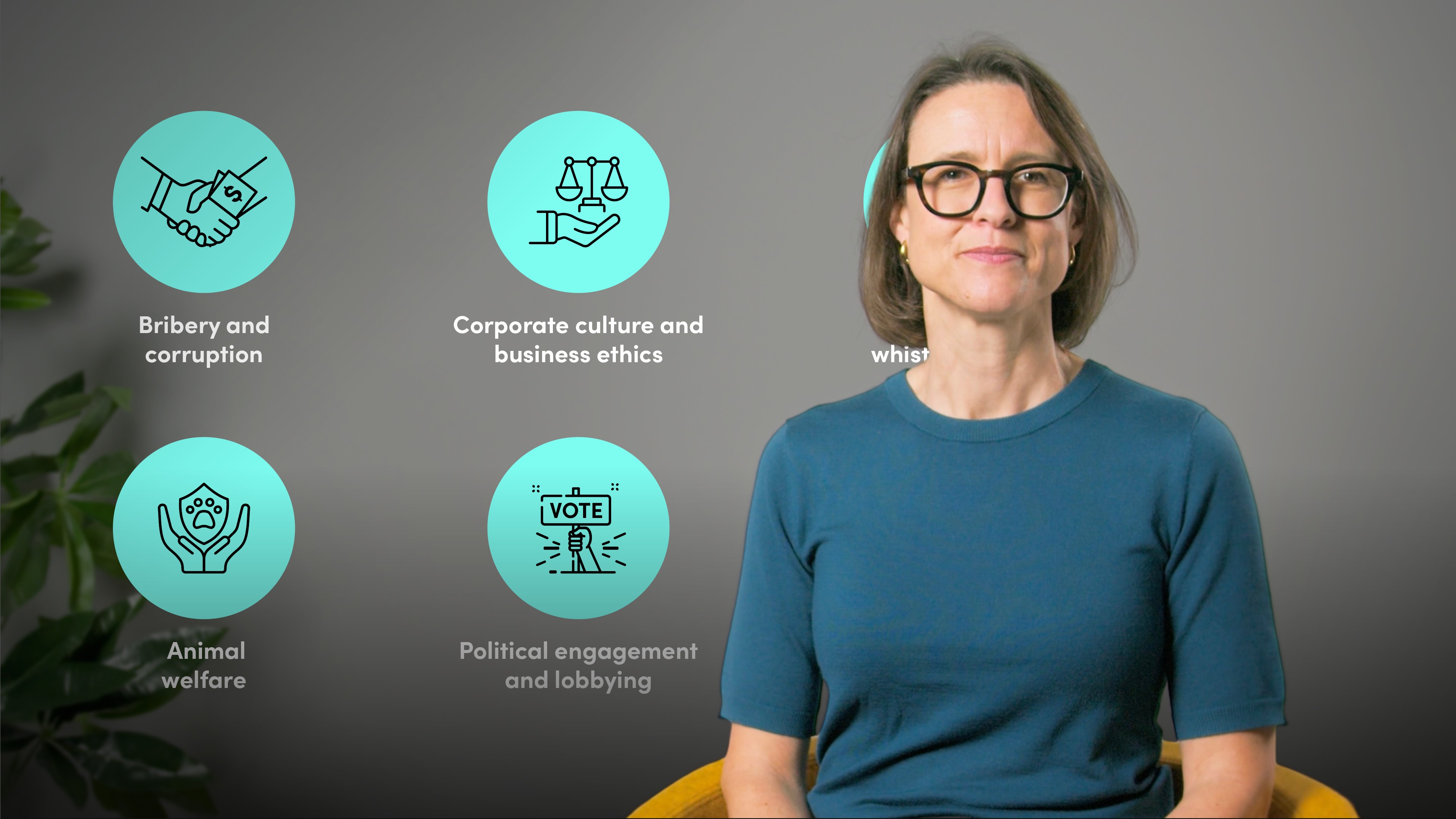
Practitioner's Guide to ESRS G1

Michelle Horsfield
25 years: Sustainable Finance
In this video, Michelle Horsfield explains the requirements of the European Sustainability Reporting Standard (ESRS) G1 on Business Conduct. The primary focus of the standard is to tackle corruption. But it also assesses corporate culture, protection of whistleblowers, animal welfare, political engagement, lobbying, and managing relationships with suppliers, including payment practices.
In this video, Michelle Horsfield explains the requirements of the European Sustainability Reporting Standard (ESRS) G1 on Business Conduct. The primary focus of the standard is to tackle corruption. But it also assesses corporate culture, protection of whistleblowers, animal welfare, political engagement, lobbying, and managing relationships with suppliers, including payment practices.
Subscribe to watch
Access this and all of the content on our platform by signing up for a 7-day free trial.

Practitioner's Guide to ESRS G1
12 mins 21 secs
Key learning objectives:
Understand the scope and purpose of the ESRS G1 Business Conduct standard
Identify the key areas covered by the ESRS G1 standard, including bribery, corruption, and supplier relationships
Understand the disclosure requirements for corporate culture, ethics, and whistleblower protection under ESRS G1
Outline the standards for political engagement, lobbying activities, and supplier payment practices
Overview:
Subscribe to watch
Access this and all of the content on our platform by signing up for a 7-day free trial.
Subscribe to watch
Access this and all of the content on our platform by signing up for a 7-day free trial.

Michelle Horsfield
There are no available Videos from "Michelle Horsfield"





























